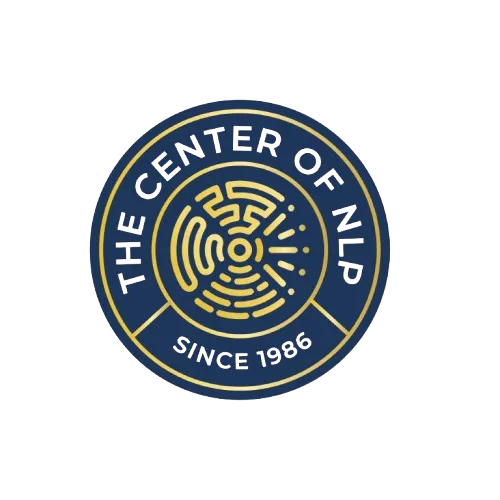
How NLP Can Improve Communication Skills in Personal Relationships
Communication is the foundation of any relationship, shaping the way we connect, understand, and relate to others. Effective communication is key to building trust, resolving conflicts, and nurturing meaningful connections. It’s unfortunate that not everyone possesses the natural ability to communicate effectively in all situations. This is why Neuro-Linguistic Programming (NLP) is a game-changer in everyones life.You will begin to explore the power of NLP by enhancing your communication skills and witness your relationships improving.
Introduction
In today's fast-paced world, where technology often replaces face-to-face interactions, developing strong communication skills has become more important than ever. NLP, a field that studies the connection between neurological processes, language, and patterns of behavior, offers valuable insights and techniques to improve communication on various levels.
Understanding Neuro-Linguistic Programming (NLP)
Neuro-Linguistic Programming (NLP) is a psychological approach that explores the fundamental dynamics between the mind (neuro), communication (linguistic), and patterns of behavior (programming). It aims to understand how we perceive the world, communicate, and create meaning. By identifying and analyzing patterns, NLP enables individuals to make positive changes in their thoughts, behaviors, and communication styles.
Importance of Communication Skills in Personal Relationships
Effective communication is the backbone of any healthy personal relationship. It allows individuals to express their needs, desires, and emotions, fostering a deeper understanding between partners, friends, and family members. Good communication skills enable empathy, active listening, and effective conflict resolution, leading to stronger connections and improved relationship satisfaction.
How NLP Can Enhance Communication Skills
NLP offers a range of techniques and strategies that can significantly enhance communication skills in personal relationships. Let's explore some of the ways NLP can be applied to improve communication:
Building Rapport and Trust
Building rapport is crucial in establishing strong connections. NLP techniques can help individuals develop rapport by mirroring and matching the body language, tone of voice, and speech patterns of the other person. This creates a sense of familiarity and trust, leading to more open and effective communication.
Active Listening
Active listening is a vital component of effective communication. Neuro-Linguistic Programming (NLP) techniques emphasize the importance of paying attention to both verbal and non-verbal cues, allowing individuals to understand the speaker's perspective more deeply. By practicing active listening, one can respond appropriately and foster better understanding in personal relationships.
Effective Non-Verbal Communication
Non-verbal cues, such as facial expressions, gestures, and body language, play a significant role in communication. NLP techniques can help individuals become more aware of their non-verbal signals and read the non-verbal cues of others accurately. By aligning non-verbal communication with verbal messages, individuals can convey their thoughts and emotions more effectively.
Empathy and Understanding
Empathy is the ability to understand and share the feelings of another person. NLP techniques encourage individuals to adopt different perspectives, enabling them to empathize and understand others' experiences. By practicing empathy, individuals can create a safe and supportive environment for open and honest communication.
Overcoming Communication Barriers
Communication barriers, such as misunderstandings, assumptions, and biases, can hinder effective communication. Neuro-Linguistic Programming (NLP) techniques, such as reframing and meta-modeling, can help individuals overcome these barriers by identifying and challenging limiting beliefs, clarifying meaning, and facilitating constructive dialogue.
Build Lasting Relationships – The Magic of NLP for Building Rapport!
Join our community dedicated to enhancing relationships through the science of neuro-linguistic programming, creating meaningful connections that withstand the test of time.
NLP Techniques for Improving Communication Skills
NLP offers a wide range of techniques that can be applied to improve communication skills. Here are some notable techniques:
Mirroring and Matching
Mirroring and matching involve subtly imitating the behavior, body language, and communication style of the other person. This technique helps build rapport and establish a sense of connection, leading to more harmonious communication.
Reframing
Reframing involves changing the perspective or meaning of a particular situation or statement. By reframing negative or limiting beliefs, individuals can shift their communication toward a more positive and constructive direction.
Anchoring
Anchoring involves associating a specific emotional state with a gesture, touch, or word. By using anchoring techniques, individuals can access desired emotional states and effectively communicate their emotions to others.
Meta-Modeling
Meta-modeling focuses on questioning and clarifying the meaning of the speaker's statements. By using specific language patterns, individuals can gather more detailed information, challenge assumptions, and facilitate clearer communication.
Presuppositions and Language Patterns
Presuppositions are statements that assume the truth of certain beliefs or ideas. Neuro-Linguistic Program
Practicing NLP for Better Communication
To improve communication skills using Neuro-Linguistic Programming (NLP), it is essential to practice the techniques consistently. Individuals can enroll in NLP courses or workshops to learn and apply these techniques in a guided environment. Regular practice and self-reflection help reinforce new communication patterns and make them more natural.
Overcoming Challenges and Misunderstandings
While NLP techniques can significantly enhance communication skills, it is important to acknowledge that challenges and misunderstandings can still arise. Effective communication requires ongoing effort, patience, and a willingness to understand and adapt to the needs of others. By maintaining open lines of communication and seeking mutual understanding, individuals can overcome obstacles and foster healthier relationships.
Conclusion
Effective communication is the cornerstone of personal relationships, and NLP offers powerful tools and techniques to enhance communication skills. By applying NLP principles such as building rapport, active listening, and effective non-verbal communication, individuals can create deeper connections, resolve conflicts, and nurture stronger relationships. By embracing NLP and practicing its techniques, we can improve our communication skills to foster healthier and more fulfilling personal relationships.
FAQs
Q1: How long does it take to improve communication skills with NLP?
A1: The time required to improve communication skills with NLP can vary depending on individual factors and the level of practice and dedication. However, consistent practice and application of NLP techniques can lead to noticeable improvements in a relatively short period.
Q2: Can NLP be used in professional relationships as well?
A2: Absolutely! Neuro-Linguistic Programming (NLP) techniques can be applied to enhance communication skills in various contexts, including professional relationships. Effective communication is essential in the workplace, and NLP can help build rapport, resolve conflicts, and improve collaboration.
Q3: Are there any risks or side effects associated with NLP?
A3: NLP is generally considered safe and does not have any known risks or side effects. However, it is important to approach Neuro-Linguistic Programming (NLP) techniques with proper guidance and training to ensure their effective and ethical application.
Q4: Is it necessary to have formal NLP training to benefit from it?
A4: While formal NLP training can provide in-depth knowledge and understanding, individuals can still benefit from applying basic NLP principles and techniques in their daily lives. However, for a more comprehensive understanding and application, formal training is recommended.
Q5: What are some other benefits of NLP in personal relationships?
A5: In addition to improving communication skills, Neuro-Linguistic Programming (NLP) can bring numerous benefits to personal relationships. It can help individuals manage emotions, overcome limiting beliefs, build self-confidence, and foster overall personal growth, leading to more fulfilling and harmonious relationships.
Check Out For more:

